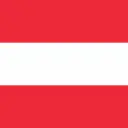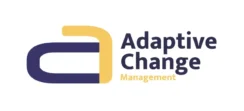Be the change you wish to see in your organization
Summary:
The text underscores trust, adaptable structures, and Socioeconomic Management Systems in organizations. It stresses adaptability, effective communication, structural analysis, and cultural alignment for stability. It introduces institutionalized decision-making policies and acknowledges decision biases, closing with a reference to stability and a Machiavelli quote.
Employees need to have trust in the organization’s hierarchical structures to develop a sense of security and safety. Permeable hierarchical structures within organizations are important for several reasons, and they play a crucial role in building trust and a sense of security among employees. In summary, permeable hierarchical structures are important because they create an environment of trust, transparency, collaboration, empowerment, adaptability, and opportunities for growth. When employees have trust in these structures, they feel safer and more secure within the organization, ultimately leading to improved job satisfaction, productivity, and a stronger sense of belonging. In summary, permeable hierarchies create trust through open communication, transparency, collaboration, empowerment, adaptability, and career opportunities, fostering a sense of security among employees.
The very new essence of hierarchical structures is the ability of an enterprise’s business management system to maintain or regain a stable state condition after business-critical interference or strategical changes. The secret recipe of Socioeconomic Management Systems is economic thinking at all levels. Its purpose is to raise the focus on economic outcomes at any level. Firstly, management top-down authority is essential for joined-up effort and strategy. Secondly, it is a fundamental asset to fast anticipating business-critical scenarios. Thirdly, institutionalization of policies of decision making, and hence, at any organizational hierarchy level, the necessity of fast information exchange is essential.
The phrase “institutionalization of policies of decision making” refers to the process of formally establishing and integrating specific policies, procedures, or rules into an organization’s structure and culture to guide and standardize decision-making processes. This institutionalization often involves creating a framework that outlines how decisions should be made, who is responsible for making them, and what criteria or considerations should be considered.
The greatest danger in times of turbulence is not the turbulence― It is to act with yesterday’s logic.
This quote of Drucker emphasizes the importance of adaptability in turbulent times, continuous learning for success, effective communication in enterprises, the need to rethink operational approaches, the limitations of rigid goal-setting, and the value of flexibility and innovation in facing modern challenges. People who are preoccupied with success ask often the wrong question. Instead of obsessing over the “secret of success,” it suggests that individuals should focus on the present and inquire, “What prevents me from learning right now?” It underscores that continuous learning and personal development occur in the present, not in a distant future. Additionally, the quote suggests that success and failure are not fixed states but rather dynamic aspects of every person’s journey. Simply working harder within old thinking is no longer effective in today’s business environment.
Yesterday’s logic is driven from three biases Confirmation bias is the tendency of people to seek out, interpret, and remember information in a way that confirms their preexisting beliefs or hypotheses. Optimism bias is the cognitive bias that causes individuals to believe that they are less likely to experience negative events or more likely to experience positive events than the average person. Familiarity bias, also known as the mere exposure effect, is the tendency of people to prefer things that are familiar to them over unfamiliar things, even if there is no objective basis for their preference. These biases can impact decision-making and lead individuals to make choices that may not be rational or based on objective information. Recognizing these biases is important for making more informed and objective decisions in various aspects of life. In our consulting engagement, we have implemented a rigorous structural analysis methodology to enhance the understanding of how different management groups interact together and align with their experts to convey strategic business goals. We also leverage the company’s culture to ensure stability and adaptability during socioeconomic changes.
As British statistician George E. P. Box once said, “Essentially, all models are wrong, but some are useful.” Focusing on what your company already possesses and working with it might be one of those “useful” models. If you optimize with a framework that doesn’t align with your specific business requirements and cultural values, you may optimize a model but not ensure that the corporate strategic goals are a commitment point for the employees. While the term “good regulator” may not be commonplace in everyday management vocabulary, the underlying principles of effective regulation, control, and adaptability are certainly relevant and understandable for managers.
Effective management entails achieving desired outcomes while maintaining stability and adaptability, aligning with the concept of a “good regulator” in the context of systems and organizational management. Here’s how this concept can be relevant: Stability: Managers aim to maintain stability and predictability. A good regulatory system keeps the organizational system stable without excessive fluctuations. Adaptability: Effective management requires the ability to adapt to changing circumstances, market conditions, and internal dynamics. A “good regulator” in management would involve strategies and policies that allow reconfiguration while still working toward desired outcomes. Responsiveness: A “good regulator” in management involves the capacity to promptly address issues and make adjustments to achieve adapted results. Efficiency: Management often seeks to optimize resources and processes. A “good regulator” in this context would involve efficient management practices that achieve objectives with minimal waste and emphasize scaling knowledge work over teams. Transparency: Management decisions and policies should be transparent to employees and stakeholders to foster trust. Consistency: Consistency in management practices helps maintain stability and predictability, much like a good regulator maintains consistent rules.
It is not wise to defend what one must give up anyway. Niccoló Machiavelli (1469 – 1527)
Fill out the form below, and we will respond within 48 hours.
Contact Us
We Shape The Future!
valuable. adaptive. innovative.
Our path of cooperation: Building trust, fostering relationships, and delivering value.
Get In Touch
- +381 65 6251 806
- +43 3322 43215
- +43 3322 43215
- [email protected]
Hours
- Mon-Fri 9:00AM - 5:00PM
- Sat 10:00AM - 2:00PM
Call us

+43 664 66 53 975

+381 65 6251 806

+43 3322 43 215

+43 3322 43 215
Trust is one of our most prized assets! We don’t make personal data available to other third parties for use.

